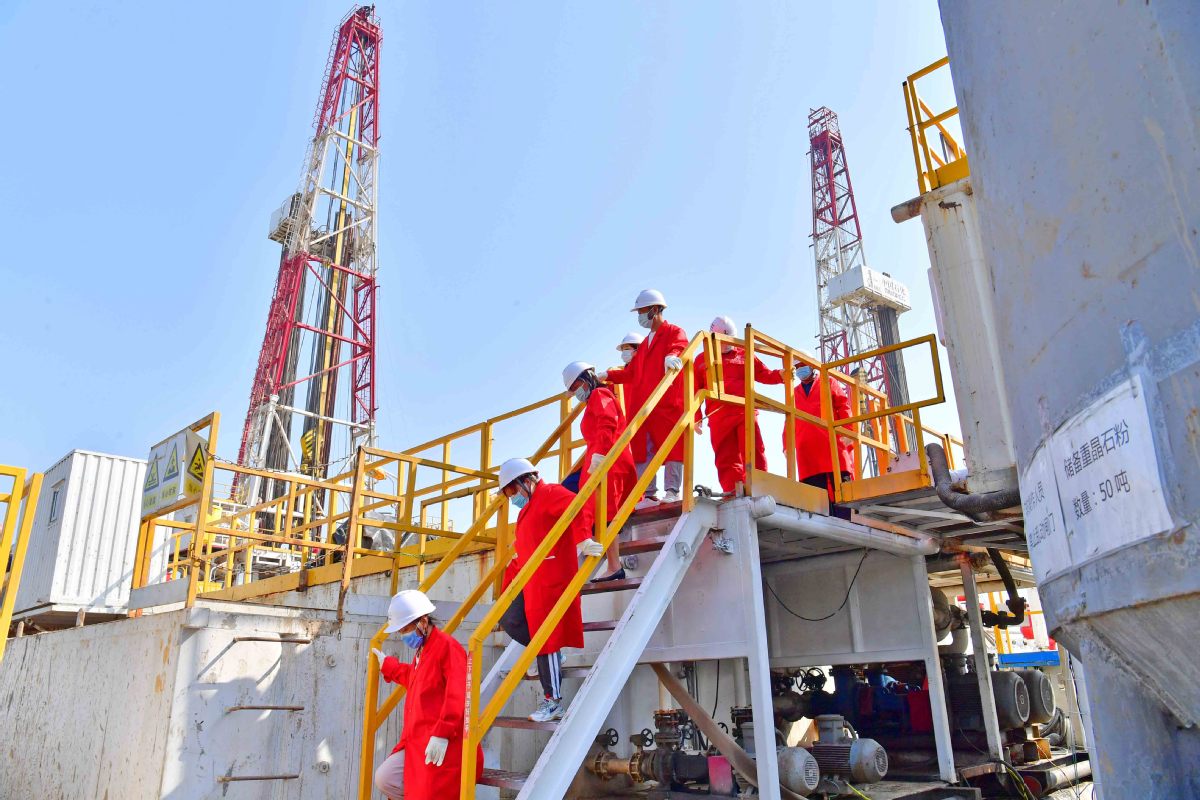Experts pin bigger green hope on CCUS


During the recently-concluded two sessions, a political adviser called for more carbon reduction projects, including carbon capture, utilization and storage (CCUS), to be included in the China Certified Emission Reduction program, to boost the nation's efforts to cope with climate change.
CCUS technology will play an essential role in helping achieve the national dual carbon targets. It is urgent to invite more carbon reduction projects to participate in the carbon trading market while improving relevant support mechanisms at the same time, said Ma Yongsheng, a member of the 14th National Committee of the Chinese People's Political Consultative Conference.
Ma, who is also president of China Petrochemical Corp, suggested strengthening the top-level design of CCUS projects and formulating regulations and industry guidelines to encourage enterprises to carry out voluntary emissions reduction projects while reducing the implementation costs of the carbon trading market for enterprises with emissions control.
The China Certified Emission Reduction (CCER) program, a voluntary program in which participants can trade carbon credits, was suspended several years ago.
An analyst said, as an important supplementary mechanism for the country's carbon trading market, which was launched last year as the world's largest, the CCER is expected to help reduce carbon reduction costs and spur the development of renewable energy sources.
Zhu Yi, a senior analyst with metals and mining at Bloomberg Intelligence, a market monitor, said she believes CCUS is one of the most effective ways for China to achieve deep emissions cuts.
The country's commitment to peak carbon dioxide emissions by 2030 will motivate various sectors to upgrade production lines and techniques, Zhu said.
Ma also suggested the government draw on international experience to introduce supportive policies to improve the norms and institutional and regulatory frameworks of the CCUS industry while exploring the formulation of tax and subsidy incentives for CCUS at the same time to achieve carbon neutrality.
While CCUS technology will play an essential role in helping achieve the national carbon neutrality targets, large-scale application of the solution remains challenging in the absence of methodology and trading mechanisms, Ma said.
Ma said: "CCUS technology and projects have been developing at a steady pace in recent years. However, its scale is still not as ideal considering the amount of carbon emissions.
"Still lagging compared with the international advanced levels in core technologies, the costs also remain high, which further limits its large-scale commercial application."
According to a report on the outlook of CCUS released by the Center for Energy and Environmental Policy Research of the Beijing Institute of Technology in January, the main challenge lies in creating conditions to support the substantial investment in large-scale CCUS, particularly as a solution to industrial decarbonization.




































